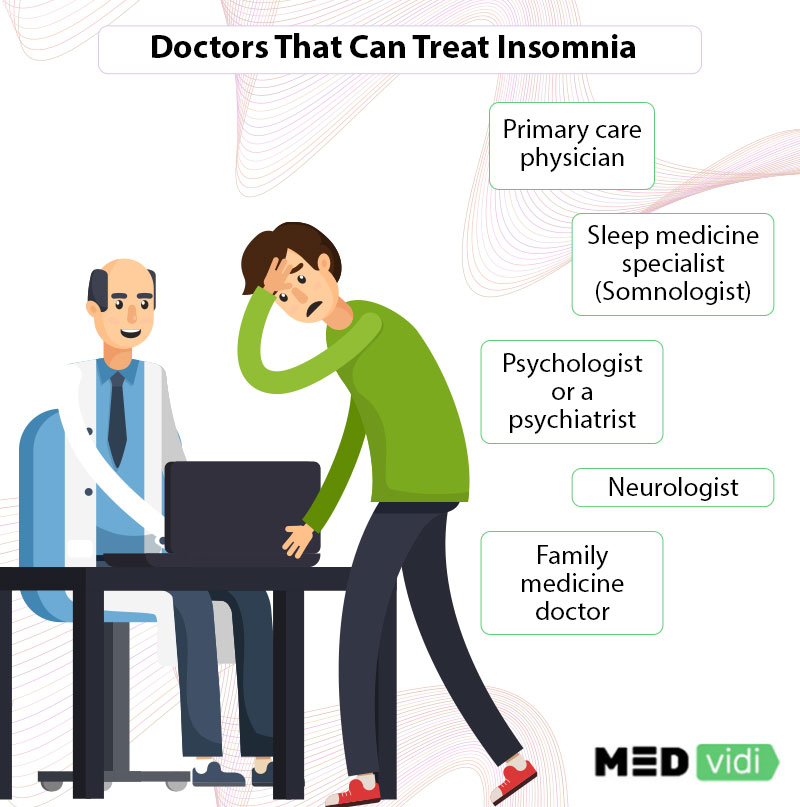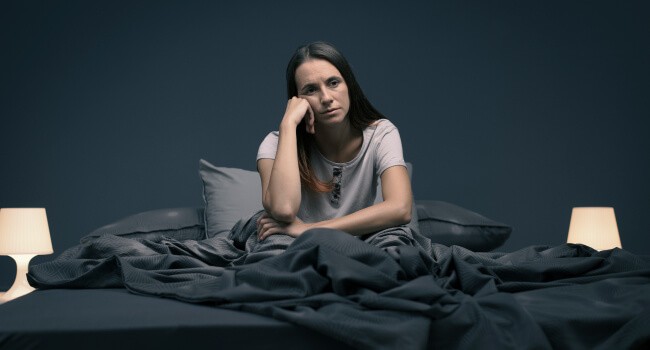Even though many sleep issues can be addressed by making little adjustments to habits or the sleeping environment, occasionally changing one’s behavior is insufficient. Speaking with a sleep expert if you are experiencing a persistent sleep issue can be a good idea.
You may have a sleep issue known as
How Do Doctors Diagnose Insomnia
It takes more than just having trouble falling asleep to be diagnosed with insomnia. The
- Trouble falling asleep.
- Difficulty sleeping through the night.
- Regular incidences of waking up earlier than planned.
- Apprehension about getting to bed at an acceptable hour.
Moreover, patients must experience one or more of the following daytime impairments to get a diagnosis:
- Daytime exhaustion and drowsiness, even after a long sleep.
- Trouble paying attention, remembering, or recalling information.
- Performance issues in social, family, academic, or professional contexts.
- Aggression and other behavioral issues.
- Lack of motivation or energy.
- Increased number of mistakes.
Consult a sleep specialist for an accurate diagnosis of sleep disorders.
Who Treats Insomnia
Consult any healthcare experts listed below if you have insomnia. They will assist you in finding solutions.
- Primary care physician. Your doctor will inquire about your sleep pattern and offer you recommendations. In addition to providing techniques for getting more restful sleep, they can also suggest a qualified expert specializing in sleep issues for you. Your physician may also recommend getting assessed for obstructive sleep apnea (OSA), a condition in which you sometimes stop breathing while sleeping. This is one of the key causes of insomnia.
- Psychologist or psychiatrist. Major stress, depression, and anxiety in your life can all contribute to insomnia. You can get assistance from a psychologist or psychiatrist to cope with the emotions and ideas that might keep you up at night. They can also give you tips on how to relax before bedtime. In addition, a psychiatrist can prescribe you sleep medicines if deemed appropriate and necessary.
- Neurologist. Insomnia may be exacerbated by a neurologic condition like Parkinson’s disease or multiple sclerosis. A neurologic illness may present with the first indication of difficulty sleeping. Ask your primary care physician whether they can put you in touch with a neurologist who specializes in sleep medicine if they believe you need one.
- Sleep medicine specialist (somnologist). A primary physician may advise you to undergo a sleep study at a sleep center. A technologist will ensure you are secure, comfortable, and aware of the entire procedure, while a sleep doctor will analyze the results. Somnologists can help you identify the underlying cause of the sleeping issue and offer different treatment options. Before visiting a center, you might be asked to fill out a two-week sleep diary detailing how much sleep you got and how it was disturbed.

Treatments for Insomnia
To aid with relaxation and sleep, your doctor may suggest behavioral therapy, medicines, or both, and some lifestyle changes. Let’s review all the options in detail.
Cognitive-behavioral Therapy (CBT)
- Sleep hygiene and education.
- Relaxation techniques.
- Compression and limitation of sleep.
- Stimulus control.
Medication
Medication is not the first-line treatment for insomnia. Some patients turn to it as a last resort when all other efforts to improve sleep have failed. There are various distinct types of
- Benzodiazepines.
- Nonbenzodiazepines sedative hypnotics.
- Orexin receptor antagonists.
- Melatonin agonists.
Note that only a healthcare professional can decide whether you need sleep medication and which one can be the most suitable.
Lifestyle Changes
You may get more restful sleep by altering your lifestyle, practicing
- Avoid consuming coffee, alcohol, and heavy meals right before bed.
- Be physically active throughout the day, ideally outside.
- Go to bed and wake up at the same hour every day, including on weekends.
- At least 30 minutes before night, put away phones, TVs, laptops, and other screens.
- Change your bedroom environment into a cool, quiet, and dark place.
Remember to see a healthcare provider if self-help techniques are not effective and sleep issues persist.
Summing Up
Your primary care doctor may diagnose and treat insomnia or refer you to a sleep specialist. It’s important to determine the cause of your poor sleep and discuss suitable insomnia treatments. Consult a health practitioner if you have trouble sleeping to get the rest you require.












